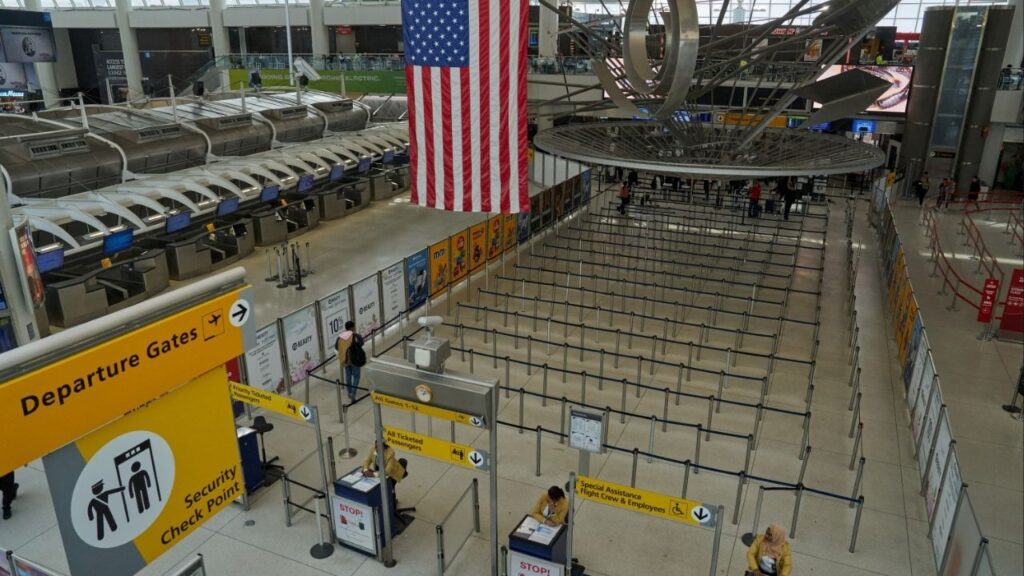Share
Tucson is widely credited as the birthplace of the 1980s Sanctuary Movement, an effort by churches to help refugees from Central America and shield them from deportation.
Now, as President Donald Trump’s immigration policies put renewed focus on the treatment of people who come to the United States without authorization, the progressive southern Arizona city is again grappling with what it means to be a city welcoming of immigrants.
The initiative, known as Proposition 205, was started by a group of activists looking to give a voice to the city’s sizeable Latino communities.
“We can make sure that our city is more equitable,” said Zaira Livier, executive director of People’s Defense Initiative. “That our city sends the message to our own residents that they’re safe, that they’re valued, that they’re not indispensable to us, that we are willing to fight for them.”
Tucson’s entire city council, all Democrats, is opposed, citing concerns about unintended consequences and the potential for losing millions of dollars in state and federal funding. They fear retaliation from the Trump administration, which has fought aggressively against sanctuary cities and tried to restrict their access to federal grants and would jeopardize the funding Tucson gets from the state.
City Council in 2012 Designated Tucson an ‘Immigrant Welcoming City’
They also worry that it would tie the city’s hands in cooperating with federal law enforcement on matters that have nothing to do with immigration.
“We are all very much opposed to most — or probably all — of the policies of the Trump administration and have done everything we can in our power legally to make it possible to protect all immigrants who come to our community,” Mayor Jonathan Rothschild said of the seven-member city council.
“You can’t change federal or state law at the city level.”
The initiative takes aim at SB1070, the 2010 immigration law that prohibits sanctuary cities in Arizona and requires police, when enforcing other laws, to verify the immigration status of anyone suspected of being in the country illegally. It prompted widespread protests and a lawsuit by then-President Barack Obama’s Department of Justice. Courts threw out much of the law but upheld the requirement for officers to check immigration papers.
Proposition 205 is a wide-ranging effort to restrict the ways that Tucson police officers interact with immigrants, people suspected of being in the country illegally, immigration authorities and other federal law enforcement officers. It would declare that “it is the policy of the city that the city be a sanctuary and safe refuge for all persons.”
Republican State Lawmakers Threaten to Punish Tucson
The measure would put new restrictions on when and where a person can be asked about their immigration status and require officers to first tell people that they have a right not to answer questions about whether they’re in the country legally. It would limit the factors officers can consider in developing “reasonable suspicion” that a person is in the country illegally, the threshold to trigger a check of immigration status under SB1070.
It also would prohibit the city from working with federal law enforcement agencies unless those agencies agree in writing to forego their right to conduct traffic stops in city limits.
Billy Peard, a lawyer who co-wrote the initiative, said it’s designed to expand what’s allowed under SB1070 and other Arizona laws. He acknowledged that if it passes it’s almost certain to end up in court. He hopes judges will rule that Tucson — and any other cities that want to follow suit — can take an extremely narrow interpretation of their obligations to enforce immigration laws.
A handful of Republican state lawmakers have said they’ll pursue legislation to punish Tucson.
Peard said he’s not worried about the threats. If lawmakers want to revisit the bitter fights that surrounded SB1070 nine years ago, they should have a debate about repealing that law, he said.
“I believe there’s enough Republicans, a newer generation of Republicans in the statehouse who do not want to revisit 2010,” Peard said. “If the legislature is hellbent on revisiting 2010, then let’s revisit 2010. That’s not going to come out too well in the court of public opinion for them.”
[activecampaign form=29]
Categories

What to Know About Widening Fallout From Bombing of Iran


















